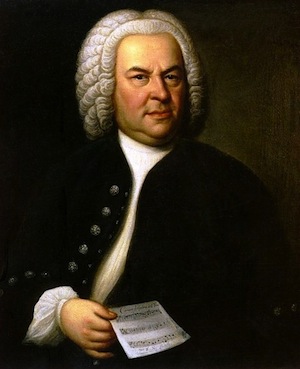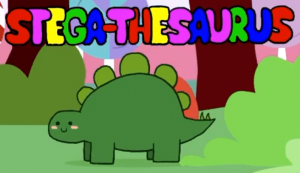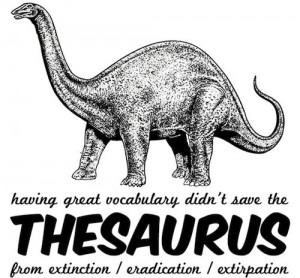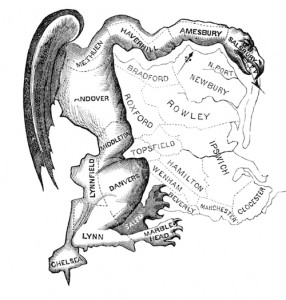by Naomi L. | October 30, 2013 | Blog, Creative Writing, Motivational Music |
After recently spending hours listening to music on YouTube, I was inspired to write another Motivational Music post. Following the debut post about ambient/post-rock music, the genre featured in today’s topic is one that I’ve enjoyed since I can remember: classical. This type of music has been great inspiration for some of my writing in the past, especially poetry (since I like to think of classical music as poetry created with sound). I don’t want to go into “pretentious mode” and pretend to have a Music-major’s extensive knowledge of the genre, though, so for my first post on the subject, I’ll just scratch the surface with a few well-known Classical-era composers: Mozart, Beethoven and Bach.
Wolfgang Amadeus Mozart

Wolfgang Amadeus Mozart (1756-1791)
Genre(s): Classical
Origin: Salzburg, Austria
Writing Inspiration: Poetry, humor
My Favorite Song(s): “Rondo Alla Turca” (Piano Sonata No. 11), “Symphony No. 40”
When thinking of classical music, one of the first names that comes to mind is Mozart, and with good reason. From piano sonatas to orchestra symphonies to operas, his music is wonderfully melodic and an absolute delight to listen to. Though I do enjoy the grander compositions like his 40th symphony, my favorite pieces of his are the lighter sonatas and arias, such as “Rondo Alla Turca” (the last movement of his 11th piano sonata, also known as the Turkish March) and the Queen of the Night aria (from the opera The Magic Flute).
What I find so enjoyable about Mozart’s music is the way it bounces, like the notes are floating on a breeze. Back when I took vocal lessons, I had to learn his piece “Das Veilchen” (“The Violet”), and though it was difficult to sing in German, I still enjoyed it for the bright melody. That’s why I find Mozart inspirational not just for poetry, but for humorous writing. Even when I’m not writing, I like to listen to his compositions just because they put me in a good mood. Whether it’s a grand symphony or a simple piano solo, there’s something about Mozart’s music that always brings a smile to my face.
Ludwig van Beethoven

Ludwig van Beethoven (1770-1827)
Genre(s): Classical (Romantic era)
Origin: Bonn, Germany
Writing Inspiration: Poetry, drama, romance
My Favorite Song(s): “Symphony No. 5“, “Für Elise” (Bagatelle No. 25)
Yes, Beethoven is one of those composers whose music I could listen to all day. While I appreciate Mozart for his upbeat pieces, I enjoy Beethoven for his bold and powerful symphonies, which make excellent inspiration for dramatic writing. I sometimes listen to his fifth symphony when trying to get into a mindset for heavier scenes full of action or strong emotion (as demonstrated beautifully in this segment from Disney’s Fantasia 2000). Of course, the composer wasn’t limited to intense symphonies; one of his most famous pieces is the lovely piano bagatelle “Für Elise”, which contrasts with his more elaborate compositions for its soft and romantic melody.
Beethoven was an important figure in the transition between the Classical and Romantic eras of music, so it stands to reason that his pieces comprise a diversity of sources for writing inspiration, from poetry to drama to romance. Honestly, I find his music so inspiring that I’d recommend it not just to writers, but to artists of any type. If you appreciate music at all, you should have at least one composition by Beethoven in your music player. It’s definitely worth it.
Johann Sebastian Bach

Johann Sebastian Bach (1685-1750)
Genre(s): Classical
Origin: Eisenach, Germany
Writing Inspiration: Poetry, drama
My Favorite Song(s): “Little Fugue (in G minor)“, Cello Suites
While Bach is admittedly not my favorite classical composer as far as concertos, I do enjoy his more subtle music. His cello suites are very beautiful and soothing (especially as performed by Yo-Yo Ma), and I find the slow melodies inspiring for writing drama and romance. My favorite piece, however, is definitely his “Little Fugue (in G minor)”; the music builds up as the different parts blend into each other to create a beautiful harmony, which I enjoy listening to while writing poetry or drama. Fun fact: this piece was adapted for the Dreamworks movie Shrek Forever After, where it plays as a club track (“Rumpel’s Party Palace“) in Rumpelstiltskin’s castle!
Though most of my favorite classical pieces are by Mozart and Beethoven, I find some of Bach’s music just as inspirational for certain forms of emotional writing. At the very least, I’d recommend his cello suites as background music for relaxing, as that can really help make the creative process easier!
Classical music is wonderful to listen to, as much for entertainment as for writing inspiration. Whether you write poetry or prose, comedies or tragedies, you can probably find inspiration in a good classical piece. I hope you enjoy the music I’ve shared with you today, and that you find in it the inspiration you need for your own art! Thanks for reading/listening!
by Naomi L. | October 28, 2013 | Blog, Word of the Week |
Word: acumen
Pronunciation: ə-KYOO-mən; A-kyə-mən
Part of Speech: noun
Definition: the ability to make good judgments and quick decisions, typically in a particular domain
Source: Oxford Dictionaries
“Acumen” is one of those words that I don’t see or hear very often because it only seems to come up in very specific contexts. For instance, the first example that comes to my mind is always “business acumen”, referring to the sharp wit it takes to succeed in the business world. I have to admit, though, that “acumen” is something I myself don’t possess, since I tend to take my sweet time thinking things through before coming to a conclusion…
“Acumen” is a person’s capacity for making quick decisions and good judgments, usually in a specific domain. The word itself is originally Latin and means “sharpness” or “point”. This noun comes from the verb acuere “sharpen”, which is also the root of the word “acute” (as in “having or showing a perceptive understanding or insight”).
When it comes to general uses of the word, I can’t be entirely certain how to apply it, as I don’t believe I’ve heard it used outside of references to particular areas of expertise before. Every time I’ve encountered the word “acumen”, it’s always been preceded by an adjective, suggesting that it works best when describing a specific type of shrewdness. Therefore, I would use it to define the capacity of characters who excel in their respective fields, and simply use synonyms like “sharp-wittedness” and “astuteness” for general contexts. Some have “business acumen”, some have “political acumen”, and some have “scientific acumen”. Now I have to wonder: is there such a thing as “writing acumen”?
What are your thoughts on this word? Any suggestions for future “Word of the Week” featured words?
by Naomi L. | October 25, 2013 | Flash Fiction, J.C. Wolfe's Writing |
I’m sitting here, trying to think of something to write, a great idea for a story…
But this bird keeps staring at me through the window.
Seriously, a bird is staring through the window of my study, looking right at me.
What does it want? I don’t look like a bird, or anything that would be friendly to a bird. I don’t have any food on me; I never once gave it something to eat. We have a cat in the house who prowls around upstairs, so it shouldn’t be there in the first place.
Yet there it is, perched on the railing, staring at me with its beady little eyes, like I’m supposed to do something.
But what? Stare back at it? That’d be something odd, a staring contest with a bird. I know who’d win that. Hint: not me.
Am I supposed to stand up? Wouldn’t it fly away? What’s the point? It’s not doing anything, just staring.
And it’s very distracting.
Stop it! What do you want from me? Go away! I’m trying to work.
I mean it! Why are you looking at me like that?! Leave me alone!
The cat will get you if you stay there. Seriously, you’d better leave. Now.
OK, that’s it! Here I come…
Oh, look at that… It’s flying away.
Great, now I can get back to writing.
…
…
“The Bird on the Balcony”…
by Naomi L. | October 23, 2013 | Blog, Creative Writing, Featured |
Remember the elementary school days when our teachers introduced us to those trusty reference books that would guide us through our writing? These were the friends we would come to rely on for the rest of our lives, the books containing so many of the answers we would need to survive our school years. The dictionary told us what those long words we’d never seen before meant. The atlas helped us find those faraway places we’d heard about in Geography class. There were encyclopedias and almanacs full of facts that came in handy for homework assignments. And then there was that book that gave us lists of synonyms and antonyms for the words we wanted to use in our writing: the thesaurus.
This last book is an interesting case, though, because unlike the others, it has the same potential to hinder as it does to help. Yes, the thesaurus is a top go-to resource for many writers, especially beginners looking to enhance their work. However, something our teachers may have neglected to tell us is that the guide comes with unwritten instructions: use knowledgeably.
Trustworthy/reliable friend/ally?

“Hooray yay for synonyms!”
(Screenshot from RubberNinja‘s Gameoverse videos)
When we were first introduced to the thesaurus, we were taught that it’s a great resource for helping to expand our vocabulary, and that’s true. I can’t even count how many new words I’ve learned just by looking up synonyms for ones I already knew. Every time I work on my stories, I have my dictionary/thesaurus widget handy to help me find replacements for words that would otherwise be repeated too soon in the narrative. It even helps me remember advanced vocabulary that I may have forgotten (which happens more often than I’d normally care to admit).
A good use of a thesaurus is as a reverse dictionary. You know how sometimes you know exactly what you mean to say, but you just can’t find the right word for it? Well, all you have to do is look up more common words for the definition you want and see what options come up. True, this method may not be as effective as using an actual reverse dictionary, which has full definitions and cross referencing, but it’s still a convenient alternative to find simpler examples, especially for writers who don’t have access to a more complete guide.
So yes, writers, the thesaurus is your friend. It will save you from plain and repetitive writing, and can teach you a thing or two (or ten) in the vocabulary department. But be warned, because placing too much trust in this guide can have negative consequences as well…
Or dubious/suspicious enemy/foe?
So how could this dependable friend of ours also be a hazard to our writing? Instead of launching into a dissertation about the dangers of overusing a thesaurus, allow me to illustrate the point instead with an example from the popular TV series Friends. In this episode, Joey wants to write a letter of recommendation for Monica and Chandler, who are planning to adopt. When he mentions that he wants to make it sound smart, Ross suggests he use a thesaurus to replace plain words with advanced ones. Unfortunately, the results are less than satisfactory…
Joey: Hey, finished my recommendation. (hands a letter to Chandler and Monica) Here. And I think you’ll be very, very happy.
[…]
Chandler: I don’t, uh, understand.
Joey: Some of the words a little too sophisticated for ya?
Monica: It doesn’t make any sense.
Joey: Of course it does! It’s smart! I used a the-saurus!
Chandler: On every word?
Joey: Yep.
Monica: All right, what was this sentence originally?
Joey: Oh, “They are warm, nice people with big hearts”.
Chandler: And that became “They are humid, prepossessing Homo sapiens with full-sized aortic pumps”?
Joey: Yeah, yeah. And hey, I really mean it, dude.
– Friends (Season 10, Episode 5 – The One Where Rachel’s Sister Babysits)
As you can see, Joey’s overuse of a thesaurus causes him to turn out a ridiculous stream of long words that have nothing to do with what he wants to say. While Ross’s advice may have been good in theory, he probably should have warned Joey not to go straight for the “smartest sounding” word every single time. The problem wasn’t just that his letter would come out overly “purple“, but that there was an important tip he neglected to keep in mind when choosing synonyms: context is key.
A notable example of a misused synonym in the above dialogue is “humid”. As we all know, while “warm” and “humid” have comparable definitions when it comes to describing the weather, only “warm” is also applicable to people. A similar problem happens with the use of Homo sapiens, which is only good for scientific writing and doesn’t really work as an alternative for “people”. With all these big words so out of place, it’s no wonder Monica and Chandler couldn’t understand anything Joey had written!
 But there’s another problem with placing too much trust in a thesaurus. Although the purpose of the guide is to index words with similar definitions, there’s a catch: the “synonyms” that come up don’t always have the exact same meaning. This means you should always be aware of the full definition of a word before you try to pass it off as a replacement for a more common one, advice that many writers fail to take into account.
But there’s another problem with placing too much trust in a thesaurus. Although the purpose of the guide is to index words with similar definitions, there’s a catch: the “synonyms” that come up don’t always have the exact same meaning. This means you should always be aware of the full definition of a word before you try to pass it off as a replacement for a more common one, advice that many writers fail to take into account.
One particularly embarrassing example of this practice from my own experience is when I used the word “fortuitous” incorrectly in a story. My thesaurus listed it as a synonym for “random”, but what I didn’t realize until after publishing the piece was that while “random” is a neutral word, “fortuitous” usually has a positive connotation (as in “good fortune”), which was not the feeling I intended to convey. Fortunately, no one ever called me out on it, but it was still embarrassing to know the mistake was out there for anyone to see. So to be safe, make sure you look up the definition of a synonym before you use it in your writing. You’ll be glad you did.
A thesaurus can be a friend or an enemy, depending on how much faith a writer is willing to invest in it. While its uses are mostly beneficial, it’s up to you to make sure that this trusted ally doesn’t turn on you and muddle up the meaning behind your words. It’s OK to trust your thesaurus to help you enhance the vocabulary in your writing. Just try not to use it in excess!
Monica: Hey, Joey, I don’t think we can use this.
Joey: Why not?
Monica: Well, because you signed it “Baby Kangaroo Tribbiani”.
What about you? Do you make good use of your thesaurus? Has it been more of a help or a hazard to your writing?
by Naomi L. | October 21, 2013 | Blog, Word of the Week |
Word: gerrymander
Pronunciation: JE-ree-man-dər
Part of Speech: verb
Definition: manipulate the boundaries of (an electoral constituency) so as to favor one party or class
Source: Oxford Dictionaries
Today’s Word of the Week was suggested by my dad, an intelligent man with a keen interest in politics. Anyone following the political news in the USA has probably been hearing a lot of the word “gerrymandering” lately. Some of you may already be familiar with this word, but to those of you wondering what in the world it means, I understand how you feel. I admit I don’t care very much for politics, so when I first heard talk of “gerrymandering” happening in the American government, I took it as an opportunity to learn a new word. What I found upon doing research was much more than a simple definition, but an interesting backstory to go with it…
 “Gerrymander” (often used as the noun “gerrymandering”) means to establish a political edge by creating partisan-advantaged districts through manipulation of boundaries. The word was coined from a political cartoon printed in 1812 (shown right), satirizing the redrawn Massachusetts election districts under Governor Elbridge Gerry, which when mapped out, resembled the shape of the mythical salamander. Since the first printing of the term “Gerry-mander” (originally pronounced GE-ree-man-dər) as a reference to the advantage Governor Gerry gained for his party after redistricting the state, the word was officially included in the English language in 1848 and remains in use today.
“Gerrymander” (often used as the noun “gerrymandering”) means to establish a political edge by creating partisan-advantaged districts through manipulation of boundaries. The word was coined from a political cartoon printed in 1812 (shown right), satirizing the redrawn Massachusetts election districts under Governor Elbridge Gerry, which when mapped out, resembled the shape of the mythical salamander. Since the first printing of the term “Gerry-mander” (originally pronounced GE-ree-man-dər) as a reference to the advantage Governor Gerry gained for his party after redistricting the state, the word was officially included in the English language in 1848 and remains in use today.
Since I don’t want to spark a political debate, I’ll leave opinions on the word’s most recent uses entirely up to you. What I can say, however, is that its references to a disproportion in power definitely give “gerrymander” a negative connotation. Though it’s a good word to know, its uses are obviously limited to very specific contexts. So if you write political thrillers, you’ll certainly be able to get much more use out of it than I ever will. Be sure to keep “gerrymandering” in mind if your characters are politicians!
What are your thoughts on this word? Any suggestions for future “Word of the Week” featured words?





 But there’s another problem with placing too much trust in a thesaurus. Although the purpose of the guide is to index words with similar definitions, there’s a catch: the “synonyms” that come up don’t always have the exact same meaning. This means you should always be aware of the
But there’s another problem with placing too much trust in a thesaurus. Although the purpose of the guide is to index words with similar definitions, there’s a catch: the “synonyms” that come up don’t always have the exact same meaning. This means you should always be aware of the  “Gerrymander” (often used as the noun “gerrymandering”) means to establish a political edge by creating partisan-advantaged districts through manipulation of boundaries. The word was coined from a political cartoon printed in 1812 (shown right), satirizing the redrawn Massachusetts election districts under Governor Elbridge Gerry, which when mapped out, resembled the shape of the mythical salamander. Since the first printing of the term “Gerry-mander” (originally pronounced GE-ree-man-dər) as a reference to the advantage Governor Gerry gained for his party after redistricting the state, the word was officially included in the English language in 1848 and remains in use today.
“Gerrymander” (often used as the noun “gerrymandering”) means to establish a political edge by creating partisan-advantaged districts through manipulation of boundaries. The word was coined from a political cartoon printed in 1812 (shown right), satirizing the redrawn Massachusetts election districts under Governor Elbridge Gerry, which when mapped out, resembled the shape of the mythical salamander. Since the first printing of the term “Gerry-mander” (originally pronounced GE-ree-man-dər) as a reference to the advantage Governor Gerry gained for his party after redistricting the state, the word was officially included in the English language in 1848 and remains in use today.
Recent Comments